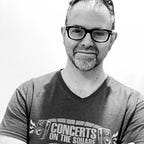How to become freakin frugal (and how to stay that way)
I’ve been seeing some trends in the personal finance sphere lately. It seems to be an easing of sorts. A letting off of the gas. Suddenly lifestyle inflation is OK. Taking your time to get to financial independence is preferable. Bicycles are too hard to use. Embracing adversity is no longer celebrated. People are turning their backs on Mustachianism. Well not this cowboy. I’m freakin frugal and I’m here to stay.
Yes, there is certainly a balance to be found, and that will be different depending on the person. But I think we should all push ourselves toward the edge of frugality. Like in yoga, which encourages practioners to push themselves to the edges of their comfort zones, we should do the same in when it comes to frugality.
I feel like the central point of Mustachianism is becoming lost. It was never about saving money — that’s not the central point, it’s the inevitable result of embracing Mustachianism. Mustachianism is about pushing yourself beyond what you thought you could. It’s about optimizing your life and cutting out the waste. It’s about embracing adversity, rising to the challenge and working hard.
So with that in mind, I decided to lay out my plan for becoming freakin frugal. Theses are some of the key ways to ensure you’re spending efficiently, reducing your impact and keeping more money for investing in your financial independence.
How to become freakin frugal
Ride a bicycle: Riding bicycles is the most efficient form of transportation, for the distance per fuel consumed. It’s science! It’s also fun. The important thing to keep in mind is that riding bicycles isn’t an all or nothing proposition. All trips “count.” Too much emphasis is put on bike to work — even if biking to work is out of reach, you can still bike to the corner store, to a friends house, whatever. Last weekend I rode my bike to the dollar store, taking a longer ride to get exercise out of it. A good rule of thumb to start with is my Two Miles to Freedom principle.
Paying is the last solution: What do I mean by this? In our consumerist culture, the first instinct is always to buy our way out of problems. I’ll illustrate with an example. A year ago, my vacuum wasn’t working. It just wouldn’t suck up any dirt. Pretty frustrating when you want a clean house. I could have gone out and bought a new one. Instead, I took apart the vacuum. I found out one of the belts had broken, so I found the part on ebay and bought it. I also cleaned out the air ducts, which were completely clogged. With a few bucks and some attention, I now have a working vacuum cleaner. It’s important to embrace the badassity of DIY.
Learn how to cook: I don’t care who you are, learn to make food for yourself. Eating in a restaurant or getting takeout should be a special treat, not something you do as a means to sustain yourself. This will make you broke, and making your own food will make you rich. One of the first things I did when started on the path to financial independence was making my own lunches for work. At a conservative estimate of $10 per lunch, that was $200 per month I suddenly had in my pocket. I spend some of that making lunches, but with economies of scale, it’s far less than $10 per day (and that’s a low ball estimate of lunch food — often it’s much more than that).
Stop doing all the things: I think it was Paula Pant that said you could afford anything, but you can’t afford everything. A key distinction. When I was a kid, my parents set limits on the numbers of activities I could be involved in, and I was forced to choose. I think there was a valuable lesson in that. Because as an adult, there simply isn’t the time, nor the money, to do everything we want. And we shouldn’t force it — having down time is valuable too. Learning to not need to be involved in every single thing, or needed to participate in every single leisure activity, is a key toward developing frugality. Time frugality is just as important as money frugality.
Do you still have cable? Seriously? With so many options for streaming, I’m surprised when I hear of people who still have cable. Even for live sports, there are services such as ESPN+ to get that fix. Paying for an uber-expensive cable package for hundreds of channels with nothing good on seems pointless. Between Netflix and YouTube, I don’t see much else needed. I even have a Hulu account for free, and I never use it. How much time do we need to spend watching TV anyway?
The great return
I’m calling for a return to the ways of Mustachianism. I think these times have illustrated the need. The ability to buckle down, to ignore the outside world and keep working on and improving ourselves, to tighten the belt when we need to are all important skills that don’t stop because the world shuts down. In fact, I think we need it even more.
BC Kowalski is the founder of www.frugalwheels.com. Follow on Twitter B.C. Kowalski.
